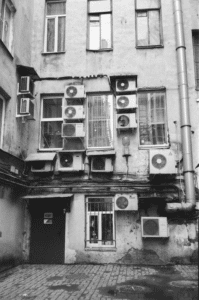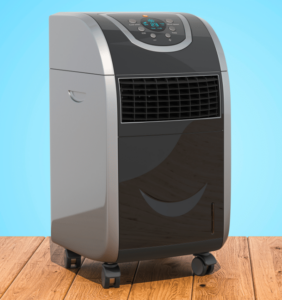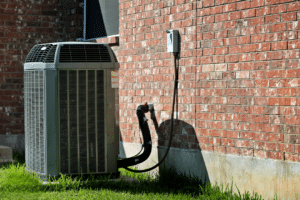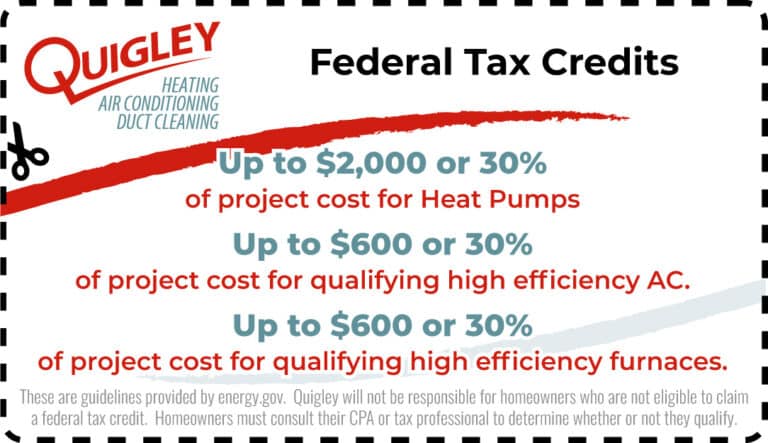Living in a hot climate can be challenging, especially without a reliable cooling system. Some homeowners opt for window AC units as a cost-effective solution, providing some relief during the sweltering summer months. However, they have their drawbacks. As these units age and become less efficient, it may be time to consider an upgrade.
When the day comes to consider the switch, there are several options to choose from, each with its own advantages and drawbacks.
- Portable AC units
- Ductless Mini split system
- Full home HVAC system
To ensure you get the most bang for your buck, it’s important to carefully weigh the factors that will influence your decision.
- Initial budget
- Square footage to cool
- Monthly energy bill budget
- Temporary fix or a long-term solution
For many homeowners, cost is the most significant factor when considering a new cooling system. Upfront costs, ongoing maintenance expenses, and operational costs all play a crucial role in the decision-making process.
Window Units

If you are only needing to cool one room, a window unit might be just what you need. They are rated by BTU’s (British Thermal Unit) and this number determines how many square feet a unit will effectively cool. Usually, window air conditioners have a BTU range from 5,000 to 36,000, meaning they can cover an area from about 100 to 1,650 square feet.
Choosing the right size air conditioner for the room will determine its effectiveness and overall cost. If your unit is too small it will have to work overtime to maintain the set temperature. This can result in extra maintenance and repair costs as well as a shorter lifespan. High quality window units will cost more upfront but have a longer lifespan, up to 15 years, but overuse will cut that short.
Portable Units
Just like window ac units, portable air conditioners are ideal for smaller spaces, though they offer several advantages, including their portability and easy installation. You simply open the box, run the vent to a window, and you are ready to cool off.

However, portable air conditioner units also have some drawbacks. The main drawback when compared to window units is efficiency. Portable units tend to consume more electricity than window units, leading to higher monthly energy bills for cooling the same area.
Since the entire system is in the same room, they can be noisy, and require floor space near a window for the exhaust vent. While filters can be cleaned and reused, finding replacement filters may be challenging. Furthermore, it can be difficult to find a professional that can come to your home to repair or service these kinds of air conditioners.
Ductless Mini Split Systems
For many homeowners, especially those with older homes, ductless systems may be an ideal solution. Installation requires minimal construction work, as there is no ductwork to install. This makes them ideal for buildings without existing ductwork, such as older homes or apartments.

However, ductless mini split systems also have some drawbacks. The initial installation cost can be significant, especially when multiple units are needed to cover a large area. Unlike central HVAC systems, the individual units are visible inside, which may be a concern for some homeowners. Furthermore, ductless mini split systems are less effective at filtering air compared to central air conditioning systems.
Despite the upfront costs, ductless mini split systems can be an excellent choice for those seeking room-specific cooling and heating. If you can afford the initial investment, they are a highly efficient and convenient solution.
Central Air Conditioners

If your home already has ductwork, installing a new central air conditioning system can be much more cost-effective than other options. The benefits include:
- Cost Savings: By utilizing existing ductwork, you can save on installation costs.
- Efficiency: Central air systems typically cool your entire home with less energy than multiple smaller systems throughout.
- Uniform Cooling: Central air provides consistent cooling throughout your home.
- Temperature Control: A single thermostat allows you to manage the temperature for your entire house.
- Improved Air Quality: Central air systems are generally better at filtering harmful particles from the air.
Routine maintenance can significantly increase the efficiency of your central air system and reduce the chances of costly repairs. So, while the upfront cost will be significantly more than the other options, over time, the investment in a new central air system will pay off.
Invest Before the Change

Expert Guidance Awaits
By carefully considering your specific needs, budget, and home’s existing infrastructure, you can determine the most suitable cooling solution. Whether you opt for a window AC unit, ductless mini split system, or central air conditioning, it’s essential to choose a system that fits with your lifestyle and keeps you comfortable.
To receive expert guidance and personalized recommendations, contact Quigley today for a free consultation. Our trained and certified technicians will evaluate your living space and unique needs, offering you the most cost-effective and efficient cooling options. Call us at 214-526-8533 or schedule your consultation online, today.






